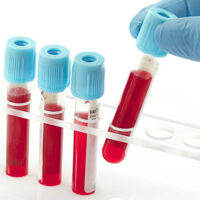Where Are Blood Tests Taken?

For those accused of DWI (Driving While Intoxicated), understanding the process of blood testing could be pivotal in building a defense. Blood tests play a critical role in some DWI cases. If you were arrested for driving impaired, connect with a qualified Houston DWI lawyer as soon as possible.
After reviewing your case, an experienced attorney may be able to challenge the validity of the blood test results by examining factors such as the chain of custody, calibration of testing equipment, and the qualifications of the individuals involved in the testing process.
Blood Collection, Lab Analysis, and Other Tests
The process of blood testing in DWI cases begins with the collection of a blood sample from the individual suspected of driving under the influence. This sample is typically drawn by a qualified medical professional, such as a nurse or phlebotomist, at a hospital or designated facility. It’s essential that the collection process adheres to strict protocols to ensure the integrity and accuracy of the sample. Any deviation from proper collection procedures could compromise the validity of the test results.
Once collected, the blood sample moves out of the collection setting and is sent to a laboratory for review. In Texas, these laboratories are facilities equipped with advanced technology to accurately measure the concentration of alcohol or drugs in the blood. Trained technicians conduct the analysis using sophisticated instruments.
Of course, blood tests aren’t the only tests used to measure whether a person is legally under the influence or not. Breathalyzers are another common method used to assess a driver’s level of intoxication. These devices measure the concentration of alcohol in a person’s breath by analyzing the air exhaled into the machine. While breathalyzers provide immediate results and are frequently used by law enforcement officers in the field, they may not always be as accurate or reliable as blood tests.
Testing Participation and Refusal
Law enforcement officers will request tests when they suspect impairment, and it’s important to understand that refusing to submit to a blood test in Texas can have serious consequences. Penalties can include automatic license suspension and legal consequences. That said, a test that illustrates a person was intoxicated isn’t the end of the story. It is possible for tests to give inaccurate readings, particularly if medical conditions influence the results.
A skilled Houston DWI lawyer can help you explore alternative explanations for elevated blood alcohol levels. A knowledgeable Texas criminal lawyer can also scrutinize the details of the testing process, from sample collection to analysis, to identify any potential flaws or discrepancies that could be exploited in your defense.
Has a blood test been used as evidence against you? Share the unique details of your case with the legal team at Ayson Law Firm. By building a strong defense strategy tailored to the specifics of each case, a Texas criminal lawyer can help individuals facing DWI charges navigate the complexities of drunk driving testing procedures and work towards a favorable outcome. Contact us today for a free consultation.
